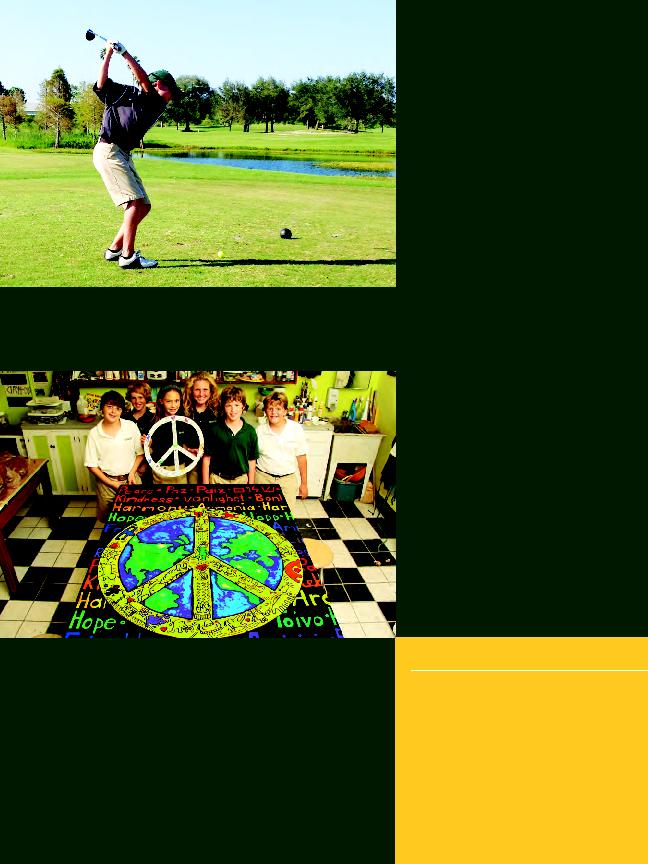
I
Students in art class studied the works of Keith Haring and used his
artistic style to express what peace meant to them for an outreach
art project, Pieces for Peace, for the Holocaust Museum. The
artwork was chosen to be displayed at the Holocaust Museum,
the Tampa International Airport, and the "Embracing Our
Differences" art exhibit in Sarasota. The project received
national Associated Press coverage regarding its message.
I
Students in seventh grade Life Science celebrated
National Poetry Month by writing poems in science class.
The students composed poems about fungus, proving that
creativity and science go hand and hand.
I
Eight students won awards at the Pinellas County Science
Fair, a fifth grade student won the first place award in the
Pinellas County Public Speaking contest, and 13 students
competed and placed in the Florida State History Fair.
A
LUMNI
C
ONNECTION
:
"Shorecrest prepared me in the way that
they taught me to think. The teachers
always encouraged you to do things a
little more independently and to take more
responsibilities for your own studies. In
college, you have to be responsible enough
to do your work on your own. No one else
cares. It's whether or not you care."
-- Sarah Dajani '05
Princeton student
I
Sixth grade students participated in the
"The Great Energy Debate," a large
scale project in which the students
created fictitious businesses for various
types of energy sources. Students
created slogans, used Photoshop to
create a company logo and prepared
a PowerPoint presentation about their
company. Each group presented
information about how their energy
source creates electricity, discussed its
advantages, and explained viable
solutions or arguments against its
disadvantages. The students also
blogged with and read responses from
a group of students from Romania who
were studying the same topic.
I
Seventh grade students put on a
1793-style coffee house to showcase
an integrated project based on the
book Fever 1793. The students dressed
in costumes representing the eighteenth
century and presented multimedia
projects that were related to the
history and science of that time period,
with projects ranging from a three-
dimensional map of 1793 Philadelphia
to movies, podcasts and even
cookbooks.
I
As part of their study of Shakespeare's
"Romeo and Juliet", eighth graders
perform a mock trial in which Romeo is
tried for various crimes, such as
murder, trespassing, disturbing a tomb,
and possession of drugs/poison. Students
become prosecution and defense lawyers
and character witnesses. Witnesses must
use the lines from the play to prove
Romeo's guilt or innocence.
